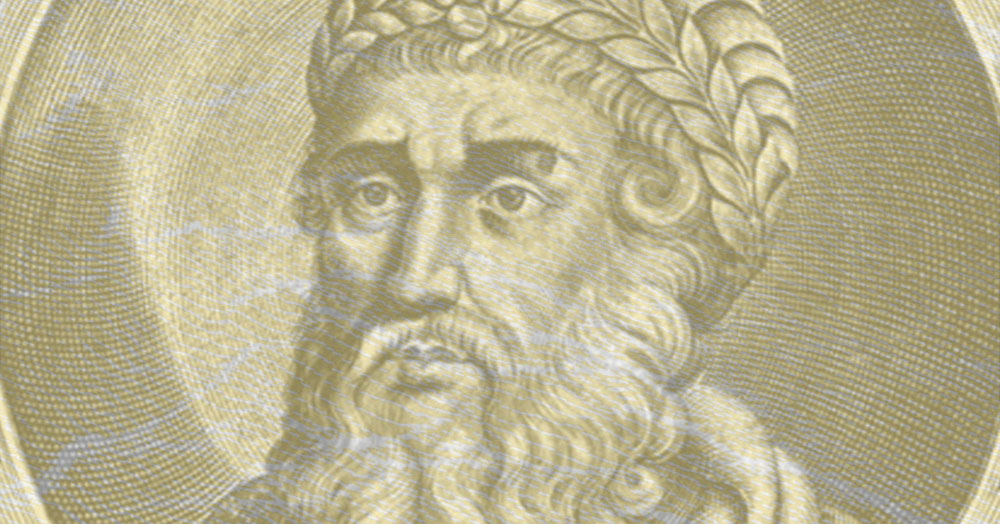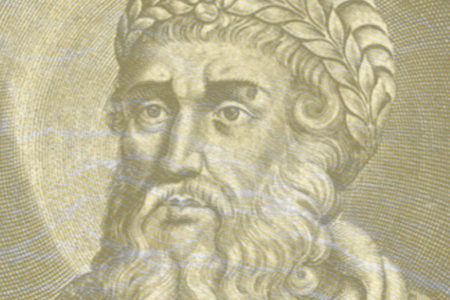The Tyrant Who Tried to Kill Jesus
He was brilliant but brutal: King Herod the Great
King Herod was a complex man. He was a brilliant builder and politician, yet a ruthless and brutal tyrant. He makes a brief appearance in Scripture as the cold-blooded killer of baby boys in Bethlehem and surrounding areas in an attempt to kill Jesus. But outside the Bible narrative, who was he?
An Edomite. Herod’s father was an Idumean, and his mother was a Nabataean Arab. The Idumeans descended from Jacob’s twin brother Esau, who was the “father of the Edomites” (Gen. 36:9).
The Edomites were perpetual enemies of Israel (Amos 1:11). To describe the relationship, the Hebrew language uses the expression olam ebah, which means “everlasting hatred” (cf. Ezek. 35:5).
God promised to judge Edom for its evil behavior toward Israel: “As you rejoiced because the inheritance of the house of Israel was desolate, so I will do to you; you shall be desolate, O Mount Seir, as well as all of Edom—all of it! Then they shall know that I am the LORD” (Amos 1:15).
A shallow Jew. John Hyrcanus (c. 175–104 BC), a descendant of the famed Maccabee family, established the Hasmonean Dynasty of ancient Judea. During his military campaigns, he pushed a policy of forced conversion to the Jewish faith on all non-Jewish people throughout Judea.
The ancient Jewish historian Flavius Josephus reported,
Hyrcanus took also Dora and Marissa, cities of Idumea, and subdued all the Idumeans; and permitted them to stay in that country, if they would circumcise their genitals, and make use of the laws of the Jews; and they were so desirous of living in the country of their forefathers, that they submitted to the use of circumcision, and of the rest of the Jewish ways of living; at which time therefore this befell them, that they were hereafter no other than Jews.1
This forced conversion affected Herod, who was considered a half-Jew: He was culturally and religiously Jewish but not by blood or direct ancestry. To gain legitimacy among his Jewish subjects, Herod married a Jewish princess. But the Jewish people under his reign always questioned his religious commitment.
A fanatical Hellenist. Herod fanatically sought to integrate Greek culture (Hellenism) into Judea and persecuted those who opposed his policies. In Jerusalem, he constructed a large open-air theater for pagan dramas that showcased sadistic spectacles.
TEMPLE MOUNT
Check out the Temple from which Herod ruled in this Temple Mount poster.
He also built a hippodrome for horse and chariot races. His Hellenistic influence was especially evident in the Greco-Roman redesign of the Jerusalem Temple.
But Hellenistic culture and customs were contrary to the Jewish faith, betraying Herod’s indifference toward biblical commands. Psalm 1:1 says, “Blessed is the man who walks not in the counsel of the ungodly, nor stands in the path of sinners, nor sits in the seat of the scornful.”
A pawn of Rome. Herod’s relationship with Rome began with his father, Antipater, who was made a Roman citizen by Julius Caesar. Herod and his family were credited with the same status of citizenship.
Herod became a skilled political schemer, and the Roman Senate eventually appointed him king of Judea. As Rome’s client king, Herod constantly struggled to maintain a delicate balance between appeasing his Roman masters and satisfying the sensitivities of his conquered Jewish subjects.
A sly fox. Herod also was a cunning administrator. He successfully kept the peace between Jerusalem and Rome, and he capitalized on Judea’s agricultural industry. Products like olive oil, dates, and grapes contributed to the economic prosperity of the region, the most productive land in the Middle East.
He extended Israel’s territory and energized commerce and trade, as seen in his construction of the brilliant seaport city of Caesarea Maritime. He used the huge profits from trade and crushing taxes to undertake a series of massive building projects.
Although Herod the Great had a great vision for Israel and the regime, his vision was clouded by self-aggrandizement and arrogance.
A merciless tiger. Unfortunately, Herod was a paranoid tyrant whose hands were stained with the blood of many victims. In his warped mind, he suspected everyone was plotting to kill or dethrone him—even his own family.
Convinced through a series of lies that his favorite wife, Mariamne the Hasmonean, was unfaithful and plotting to poison him, he reluctantly ordered her execution. He even charged his two sons by Mariamne with treason and ordered them to be strangled to death.
When the magi arrived and told Herod about Jesus’ birth, referring to the Child as “King of the Jews,” Herod’s paranoia soared. He considered himself the king of the Jews, as appointed by Rome. So he immediately tried to kill his potential rival by ordering the murder of all boys two years old and younger in the region (Mt. 2:16–18).
Skeptics question whether this biblical event really happened; but considering Herod’s intoxication with power, even the greatest skeptic should realize the slaughter is consistent with Herod’s pathological disposition.
It seems perverse this pseudo Jew, who scrupulously observed such Mosaic dietary laws as not eating pork, completely disregarded the sanctity of human life. Clearly, he had no regard for God’s law, which states, “You shall not murder” (Ex. 20:13). His penchant for murdering even members of his own family was well-known. Hearing that Herod killed his own son, Emperor Augustus famously taunted, “I’d rather be Herod’s pig than his son.”
A despot while dying. Isaiah 57:21 says, “‘There is no peace,’ says my God, ‘for the wicked.’” Herod certainly experienced no peace at the time of his death. Josephus described the agonizing end of Herod’s life in his book Antiquities of the Jews:
But now Herod’s distemper greatly increased upon him after a severe manner, and this by God’s judgment upon him for his sins; for a fire glowed in him slowly, which did not so much appear to the touch outwardly, as it augmented his pains inwardly; for it brought upon him a vehement appetite to eating, which he could not avoid to supply with one sort of food or other. His entrails were also exulcerated, and the chief violence of his pain lay on his large intestine; an aqueous and transparent liquor also had settled itself about his feet, and a like matter afflicted him at the bottom of his belly. Nay, further, his privy-member was putrefied, and produced worms; and when he sat upright, he had a difficulty of breathing, which was very loathsome, on account of the stench of his breath, and the quickness of its returns; he had also convulsions in all parts of his body.2
Yet even amid his intense pain as he lay dying, his barbarity did not cease. Fearing people would rejoice after he died, he ordered that all Jewish leaders be detained in the hippodrome and killed upon his death so that there would be great mourning throughout the land. However, immediately before his death, all the leaders were set free.
Herod died in Jericho and was entombed at his fortified palace, called Herodium, about five miles south of Bethlehem. He prearranged that on his death, a diadem and a crown of gold be placed on his head and a scepter placed in his right hand. How ironic that King Herod was buried in splendor near where the true Jewish king, Jesus the Messiah, was born in humble settings (Mt. 2:1; Lk. 1:30–33).
So who was this man named Herod the Great? He was a Roman client, a “Jewish” king, a Hellenistic ruler, an Edomite by birth, a Jew by marriage, a Greek in culture, and a Roman out of necessity. He governed like a fox, ruled like a tiger, and died like a dog.
ENDNOTES
-
- Josephus Antiquities of the Jews 13.9
- Ibid. 17.6.5








Excellent insight! Thank you!
James